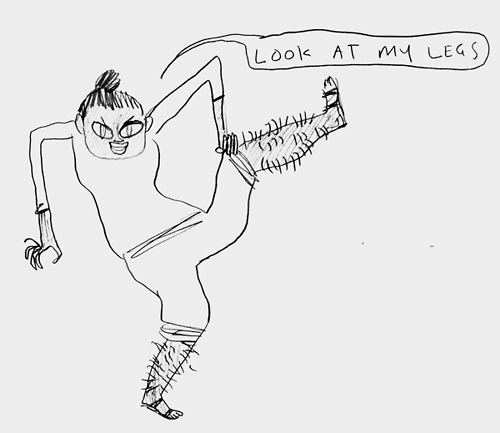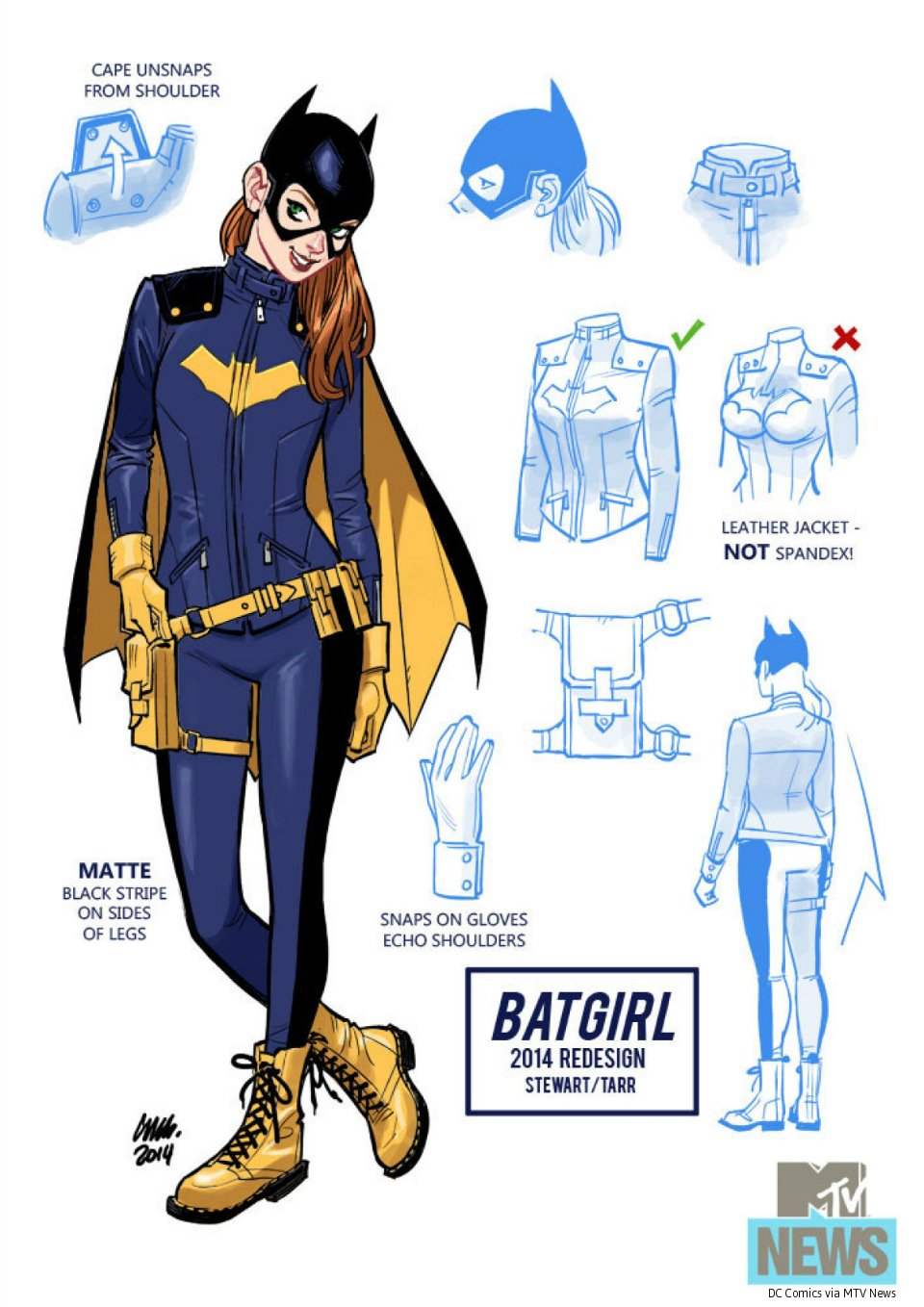I'm aware this one's a bit on the word heavy side but it's one of the first projects I've been involved with and I'm super excited to get a chance to see the finished result! So sorry if it's a bit boring and long but I just had a fair bit to say on the subject and it's something pretty close to my heart! Enjoy x.
It's always a hilarious story that on the night of John Ruskin's wedding he refused to have sex with his wife, Effie Gray, fainting after the realisation that she had pubic hair. Gray wrote in a letter to her parents that he became "disgusted with [her] person." However the question always arises as to whether the story is hilarious because Ruskin was so oblivious and wrong to think that an adult woman would be as smooth as a new born baby or whether it's hilarious because so many of us hold these myths about the female anatomy and he only ended up acting the way that we would. Although it is pretty questionable as to what Gray actually meant in her letter and the evaluation of these sources by historians has allowed them to believe something else, we know that the history of female bodily hair has not always been an accepting one.
For women, shaving bodily hair has been considered a societal norm for up to 100 years now and before that it was still a practice amongst certain sectors of society. One such sector was in Ancient Egypt where Egyptian prostitutes would shave their pubic hair as a sign of their profession. Despite people often arguing that shaving has huge hygienic benefits, the fact of the matter is it became popular as a result of good marketing by shaving companies who made it a fashionable thing to do in attempt to make more money out of consumers. As dresses got shorter and clothes got smaller, shaving became more important for women. To be seen with unsightly bodily hair was to be considered "objectionable". Previously, companies only benefited from the shaving market as it became a necessity for men to shave facial hair. These companies soon realised there was a huge gap in the market and began to aim for the insecurities of women. However, the pressures for men to shave are noticeably no where near as intrusive as the removal of hair became a plight for women everywhere. Whereas men do shave many of the same regions as women, I personally have never had so many attempts for people to make me uncomfortable with my physical appearance than I have since I stopped shaving. Even though I've had acne and have been overweight, the main thing that the intrusive comments of acquaintances are based on how manly my leg hair is or when the last time I shaved my armpits was.
This afternoon, I had my photo taken by Ailsa Fineron, a girl I met online through the University of Bristol Feminist Society facebook page. Although neither of us attend Bristol University (although she did at a point), we both identified heavily with the girls who do and appreciated wholeheartedly how active the community page was. She posted that she was currently working on a project about body hair and what she felt was still a fairly taboo subject. Straight away I messaged her, excited to take part in something I'd never done before as well as meeting someone who felt the way I did about a huge issue in my life. Her aim was to photograph "people's experiences, perceptions, actions and choices/lack of choices surrounding" body hair, captioning the photos with various quotes from the interviews she took. We'd planned to meet up for a while, organising times around our jobs and eventually found a sunny Tuesday afternoon to be the perfect time. As well as being a lovely photographer, her work was thoughtful and sensitive approaching body hair from both sides.
She asked me if I had any other friends who didn't shave, to which I unfortunately said no, unless we mention my 68 year old feminist nan, who subtly fed me first wave feminist rhetoric for as long as I can remember. However as none of my female friends abstain from shaving, alongside the fact that many of the negative comments I receive are from friends who mean it in good jest, it made me feel a bit hopeless. The amount of times "someone forgot to shave" has resonated in my head as I catch a glimpse of my armpit hair sprouting out over a t-shirt and it eats away at me in my moments of weakness. In those moments, it could be a lot easier to shave everything and wear my body hairless like so many others do. Personally, feeling that level of self-disgust really dispelled the myth that not shaving is easier, and that those women who don't shave are lazy. I still haven't found that unwavering self-belief it takes to downplay all the tiny comments that shatter your confidence, and most days I feel a little horrified with my body because it doesn't fit that tiny quota of what It Means To Be Beautiful.
The shame that we as women are made to feel because of the natural state of our bodies has always been evident within pop culture too; In 1999, Julia Roberts was famously criticised for embracing hairy armpits, which is apparently considered one of "Hollywood's Top 10 Funniest Moments" and she is only one of many famous women who are constantly being berated for "forgetting to shave". I remember being about 11 when I watched Miranda and Samantha argue on Sex and The City over a visible hairy bikini line and could always recall thinking that it was the stupidest shit I'd ever seen. One women belittling another because of pubic hair? Although it's probably safe to say I had none at the time and wasn't entirely sure what a 'bikini line' was, the thing I wasn't aware of at that age was that there is a huge pressure for women to expel hair from their bodies for a number of reasons; supposed hygiene, trends, for the sake of sexual attraction, for a partner, and my personal favourite - "because no one wants a pubes stuck in their teeth"
People who make a conscious decision not to shave their body hair are often met by hideous scrutiny by the public. One such example is Grimes, whose fans were, for want of a better phrase, completely grossed out by her public display of her armpit hair. The 'straw feminist' is constantly portrayed covered in body hair, clad in flannel, burning her bra while rejecting all men. The pejorative use of body hair to define feminists is an attempt to shame women who defy the cripplingly narrow beauty standards that western society attempt to mould them into. Of course not all feminists fit this description and many do perfectly, to identify yourself in this way renders you an abnormality in society's eyes. This expression of hair as an insult highlights the idea that body hair is not feminine, to defy feminity is to defy beauty and to defy femininity means not to be a woman. Despite this, I don't believe that the women who choose to shave have it easy either. All women alike undergo massive pressures to look a certain way and many of us will never meet these expectations.

We then spoke about what was the point? If we all go through the same struggle, why struggle on? Why do we make the decisions we do regarding our body hair? Why is sporting permanently fluffy legs and hairy armpits a choice that I wanted to make? The one thing Ailsa said that really stuck in my head was that her body hair was a fashion statement. Although the reasons to not shave can be never ending, one of the main reasons that so many people can relate is because there is some kind of statement to be made by doing something that in the eyes of so many people can be really irrelevant.
Personally, the sentiment behind not shaving lies so closely to my own autonomy. When I know I have the choice not to shave, to grow my hair or cut it all off, the idea that this body is mine and no one else's. There is such great freedom in that. I am no one else's but mine, no one's opinion of me is higher than my own and for me that means wearing shorts skirts and letting my leg hair blow in the wind (yes this does actually happens). I feel freedom even when people stare at my body, whether it be in shock, disgust or support, because I know the statement I'm making is working, I'm making people look because I have the choice to.
The most beautiful thing I've found through meeting Ailsa, communicating with so many other feminists, growing up with my nan and choosing not to shave is that overwhelming sense of community. Those little friendships that spark between you and someone else when you're completely in tune with what the other person is saying. I have very few friends who are positive about body hair, let alone any that choose not to shave but meeting Ailsa and seeing someone who in some way had made a similar choice to me, discussing ideas and agreeing on things that no one I'd met before had was completely heart warming. I believe a lot of feminists can spend a fair amount of time living in communities that totally reject them, leaving them feeling isolated and stranded. However, Ailsa telling me that "these photos are going to come out really good" was so uplifting. In my eyes, my body hair is not only a political act, it's not only a fashion statement but it's also a small sign of solidarity that I believe in something and I am not alone in that belief.
Images by: (1, 2, & 3) Ailsa Fineron, (5) Grimes, (6) Hark, A Vagrant
Check out The Body Hair Project
Follow me on Twitter







